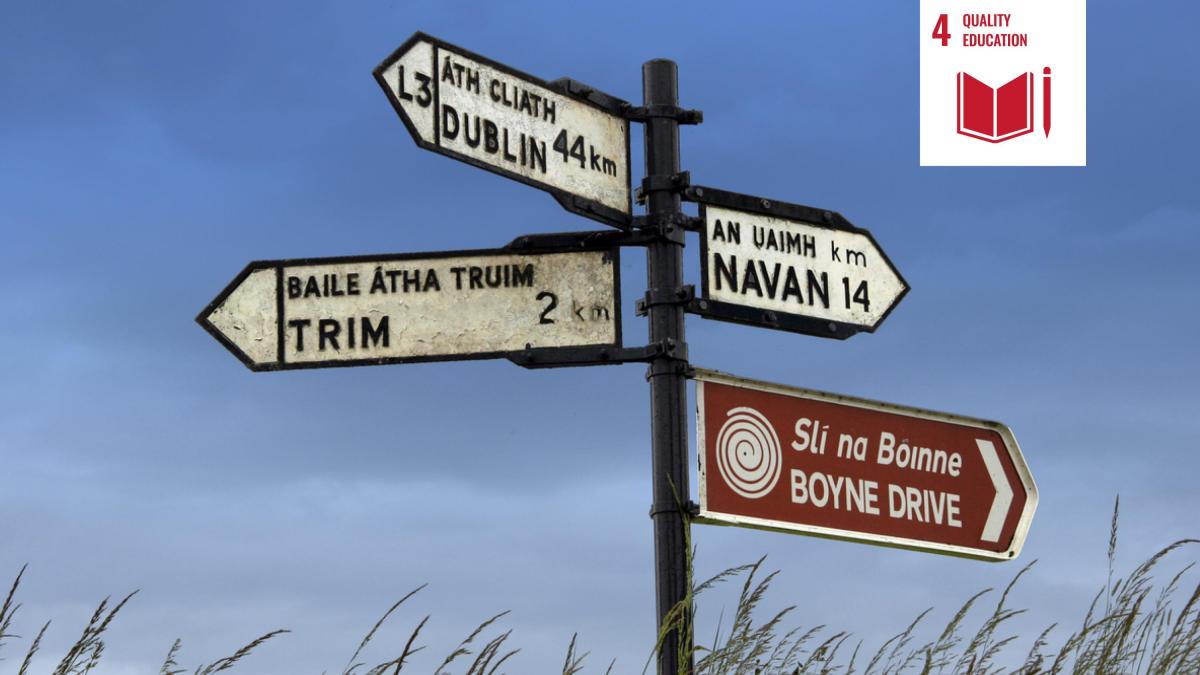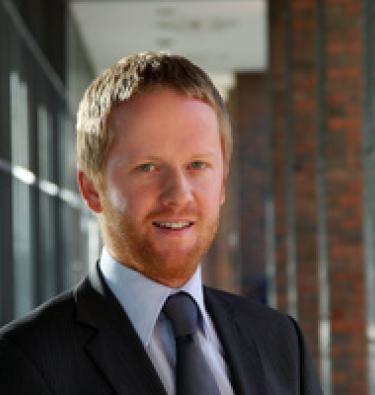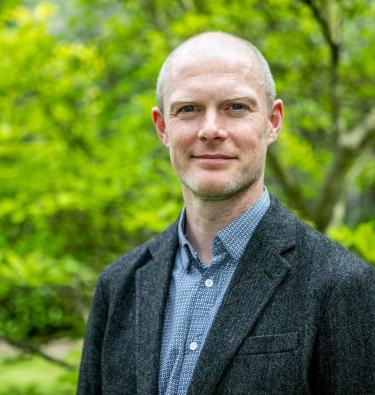
Irish is a mandatory subject in schools, is deeply intertwined with the history of the Irish state, and is recognised as an EU language. However, what active role can it play in the current digital practices adopted by business, state bodies, and legal practitioners? This is a common thread running through the work of Gaois, a research group in Fiontar & Scoil na Gaeilge, DCU. Gaois applies modern technology to expand our understanding of the Irish language and its wider influence past, present and future.
The group's key aim is to develop innovative resources to support the Irish language and its heritage. We work mainly in terminology and onomastics (the study of names), and are primarily focused on developing user-friendly web-based Irish-language lexical resources both for the research community and as a public good. Much of our research funding comes from the Department of the Gaeltacht, through its Scéimeanna Tacaíochta Gaeilge programme, established to fund projects implementing the goals of the 20-Year Strategy for the Irish Language 2010–2030. We also receive funding from Foras na Gaeilge, the Irish Research Council, the ECB, and other sources. In addition, we have a number of research projects that address some of the goals in the Government’s Digital Plan for Irish 2023–2027, e.g. the National Corpus of Irish – corpas.ie, which will deliver a number of balanced corpora, large language models, and NLP tools.
The icon on this article represents contribution towards the UN Sustainable Development Goals. The Sustainable Development Goals are 17 objectives designed by the United Nations to serve as a shared blueprint for peace and prosperity for people and the planet.
Online resources
Many of our online resources such as téarma.ie and logainm.ie are household names because of their extensive use by language learners, language professionals and researchers alike. The best known and longest-running (est. 2005) of these resources is the National Terminology Database for Irish – téarma.ie (originally known as focal.ie), a bilingual termbase comprising c.193k concepts. The Téarma public interface is used daily by tens of thousands of schoolchildren, by thousands of university students, and by hundreds of journalists and translators. It handles about 20,000 searches per day. Our role in the Téarma project is to develop and maintain the research infrastructure used by the Irish National Terminology Committee to manage and disseminate their terminological data. We also regularly develop terminologies in specific domains for this and other termbases, such as the EU’s IATE multilingual termbase and the ECB’s €uroTERM termbase. Our terminologists work interactively on these projects with subject matter experts and other stakeholders, while applying best methodological practice in the field of terminology.

Cloud-based terminology management
Terminologue, the cloud-based terminology management platform developed and hosted by Gaois (and a spin-off from the Téarma project) has over 2,500 users worldwide and hosts over 3,300 termbases. It is used as a T&L tool in at least ten 3rd level institutions around the globe. It is also being used by a number of commercial companies to manage their in-house terminology collections. This software is open-source and has been translated by our users into 15 languages (including Arabic — Terminologue can handle right-to-left script). The Terminologue project is gaining traction among the terminology research community and has been presented in a number of academic forums (e.g. Euralex, EAFT) as well as on the Gaois YouTube channel.
The Placenames Database of Ireland – logainm.ie (est. 2008), came about as a result of the success of the terminology project, and built upon our experience in building a large-scale web-based lexical database. Similar to the Téarma project, our primary role in the Logainm project is to develop and maintain the research infrastructure used by the Placenames Branch of the Government to manage and disseminate their toponymic data. The primary role of the Placenames Branch is to carry out research to establish an official Irish-language placename for every administrative land division in the country, primarily townlands. While official streetname forms are the responsibility of the respective local councils, the streetnames are disseminated via Tailte Éireann maps and via logainm.ie. Gaois researchers are currently working on a project to complete the set of streets held in the Logainm database. The results of this project will feed into other datasets such as OSM, GeoDirectory, Eircode, as well as the various commercial mapping platforms.
Crowd sourcing platform
Meitheal Logainm.ie, a sister to the Logainm project, is a platform to crowdsource microtoponymic data from members of the public and from local heritage projects across the country. It provides a centralised platform for projects to deposit and disseminate their findings. The platform currently has around c.1k individual users (having contributed c.13k entries), and 21 collections (comprising c.43k entries).
In addition to our focus on terminology and onomastics, we are involved in a number of Digital Humanities research projects. The most important of these is the Dúchas digitisation project – dúchas.ie. Dúchas is a project to digitise and disseminate the various collections of the National Folklore Collection held in UCD via the web. This project has been hugely successful and has a large worldwide user base amongst researchers, students and the public alike. Contributors to its sister project, Meitheal Dúchas.ie, have transcribed over 444k manuscript pages. A follow-on project, Decoding Hidden Heritages, which was funded by the IRC and is being carried out in conjunction with partners in the University of Edinburgh and a number of other universities, is using cutting-edge computational methodologies to decode, interpret and curate the hidden heritages of Gaelic traditional narrative.
Links to a list of our projects, our team, our publications, our technologies, our documentation, and our source code can be found on www.gaois.ie.

Dr Brian Ó Raghallaigh is an Assistant Professor in Fiontar & Scoil na Gaeilge, DCU

Dr Gearóid Ó Cleircín is an Assistant Professor in Fiontar & Scoil na Gaeilge, DCU




